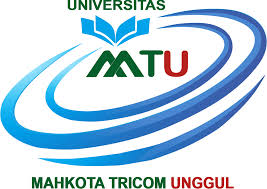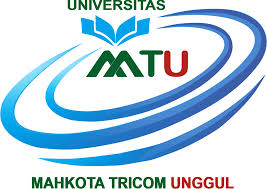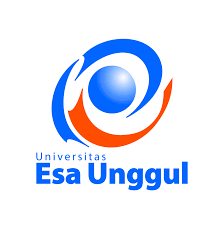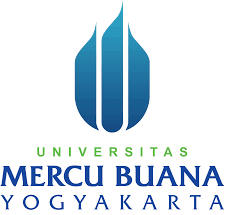Governance of Digital Transformation Initiatives: A Case Study of Industrial Engineering Program at Universitas Bakrie
DOI:
https://doi.org/10.55927/ijcs.v1i10.11171Keywords:
Digital Leadership, Digital Transformation, Education GovernanceAbstract
This research aims to explore the governance of digital transformation initiatives in the Industrial Engineering Study Program, Faculty of Economics and Social Sciences, Bakrie University. Using a descriptive qualitative approach, this study identifies and analyzes how the institution manages digital change, the challenges faced, and the impact on various aspects of education. Data was collected through in-depth interviews with leaders, lecturers, administrative staff, and students, as well as observation and study of relevant documents. The findings show that the success of digital transformation depends on strong leadership, integration of technology in the curriculum, data security policies, and an organizational culture that supports innovation. Active stakeholder engagement and effective risk management strategies also play an important role in overcoming digital challenges
Downloads
References
Alenezi, M. (2021). Deep dive into digital transformation in higher education institutions. Education Sciences, 11(12). https://doi.org/10.3390/educsci11120770
Al-Hadithy, M., Singh, A., & Lejeune, J. (2018). Digital Governance in Higher Education Institutions: A Framework for Effectiveness. International Journal of Educational Technology in Higher Education, 15(3), 245-260.
Andrews Dennis. (2023). 10 Types of Digital Transformation Models (+Examples) - Whatfix.
Azhari, P., Faraby, N., Rossmann, A., Steimel, B., & Wichmann, K. S. (2014). Digital Transformation Report 2014. In Organisationsentwicklung.
Badan Kerjasama Penyelenggara Pendidikan Tinggi Teknik Industri Indonesia. (2022). Kurikulum Inti Program Sarjana Teknik Industri Tahun 2022 (012/SK/BKSTI/V/2022).
Bruin, T. De, Freeze, R. D., Kulkarni, U., & Rosemann, M. (2005). Understanding the Main Phases of Developing a Maturity Assessment Model Understanding the Main Phases of Developing a Maturity Assessment Model. 16th Australasian Conference on Information Systems (ACIS), January, 1–12.
Burnes, B. (2019). Managing Change in Organizations: A Practical Guide. Routledge.
Chen, B., & Bryer, T. (2020). Investigating Instructional Strategies for Using Social Media in Formal and Informal Learning. The Internet and Higher Education, 28, 53-60.
De Carolis, A., Macchi, M., Negri, E., & Terzi, S. (2017). A maturity model for assessing the digital readiness of manufacturing companies. IFIP Advances in Information and Communication Technology, 513(August), 13–20. https://doi.org/10.1007/978-3-319-66923-6_2
DeFilippis, E. (2021). Leadership in Digital Transformation: The Role of Higher Education Leaders in Driving Change. Journal of Educational Change Management, 7(1), 79-94.
DeFilippis, E. (2021). Leadership in Digital Transformation: The Role of Higher Education Leaders in Driving Change. Journal of Educational Change Management, 7(1), 79-94.
Ertmer, P. A., & Ottenbreit-Leftwich, A. T. (2020). Teacher Technology Change: How Knowledge, Confidence, Beliefs, and Culture Intersect. Journal of Research on Technology in Education, 52(3), 344-361.
Haseeb, M., Hussain, H. I., Kot, S., Androniceanu, A., & Jermsittiparsert, K. (2020). Role of Social and Technological Challenges in Achieving a Sustainable Competitive Advantage and Sustainable Business Performance. Sustainability, 12(8), 2911.
Hayes, J. (2022). The Theory And Practice Of Change Management (Sixth Eds). Red Globe Press.
Heath, C., & Heath, D. (2017). The Power of Moments: Why Certain Experiences Have Extraordinary Impact. Simon & Schuster.
Hess, T., Matt, C., Benlian, A., & Wiesböck, F. (2020). Strategic Information Management Theory and Practice - Options for Formulating a Digital Transformation Strategy. In R. Galliers, D. Leidner, & B. Simeonova (Eds.), Routledge (5th Eds). Routledge. https://doi.org/9780429286797
Hiatt, J. M., & Creasey, T. J. (2012). Change Management: The People Side of Change (Second eds). Prosci Inc.
Kaplan, A. (2022). Digital Transformation and Disruption of Higher Education. In A. Kaplan (Ed.), Cambridge University Press (1st eds). Cambridge University Press. https://doi.org/10.1017/9781108979146
Khan, M. S., Mubashir, T., & Iqbal, J. (2019). Digital Policy Framework for Higher Education Institutions: A Case Study Approach. Journal of Digital Education Technology, 4(2), 151-162.
Kotter, J. P. (2017). Leading Change. Harvard Business Review Press.
Loonam, J., Eaves, S., Kumar, V., & Parry, G. (2018). Towards digital transformation: Lessons learned from traditional organizations. Strategic Change, 27(2), 101–109. https://doi.org/10.1002/jsc.2185
Malik, P. (2022a). 8 Examples of Inspiring Digital Transformation Case Studies. Whatfix.
Malik, P. (2022b). 9 Key Digital Transformation Goals & Objectives (2023). Whatfix.
Morakanyane, R., & Grace, A. (2017). Conceptualizing Digital Transformation in Business Organizations : A Systematic Review of Literature. 30th Bled EConference Digital Transformation – From Connecting Things to Transforming Our Lives, December, 1–14. https://doi.org/10.18690/978-961-286-043-1.30
Nambisan, S., Lyytinen, K., Majchrzak, A., & Song, M. (2017). Digital Innovation Management: Reinventing Innovation Management Research in a Digital World. MIS Quarterly, 41(1), 223-238.
O'Brien, J., & Jones, D. (2018). A Framework for Digital Transformation: The Role of Institutional Governance. Journal of Educational Leadership and Management, 6(2), 203-219.
O'Brien, J., & Jones, D. (2018). A Framework for Digital Transformation: The Role of Institutional Governance. Journal of Educational Leadership and Management, 6(2), 203-219.
Olmstead, L. (2024). Digital Transformation in Engineering (+Examples). Whatfix.
Sahlberg, P. (2021). Finnish Lessons 3.0: What Can the World Learn from Educational Change in Finland? Teachers College Press.
Sahlberg, P. (2021). Finnish Lessons 3.0: What Can the World Learn from Educational Change in Finland? Teachers College Press.
Selwyn, N. (2021). Digital Education: A Critical Introduction. Routledge.
Seperti Apa Peran Teknik Industri dalam Transformasi Digital? - Universitas Bakrie. (2023).
Starkey, L. (2020). A Critical Review of Digital Literacy in Learning and Education. Educational Technology Research and Development, 68(2), 167-182.
Tabrizi, B., Lam, E., Girard, K., & Irvin, V. (2019). Digital Transformation Is Not About Technology. Harvard Business Review, 13(Change Management), 1–6.
Tang, D. (2021). What Is Digital Transformation? Edpacs, 64(1), 9–13. https://doi.org/10.1080/07366981.2020.1847813
Teichert, R. (2019). Digital Transformation Maturity : A Systematic Review of Literature. Acta Universitatis Agriculturae et Silviculturae Mendelianae Brunensis, 67(6), 1673–1687.
Transformasi Teknik Industri dalam Menghadapi Era Digital - Universitas Bakrie. (2023).
Upadrista, V. (2021). Formula 4.0 for Digital Transformation: A Framework Using Digital Enablers from Industry 4.0 (1st Editio). Taylor and Francis. https://doi.org/10.4324/9781003159070
Westerman, G., Tannou, M., Bonnet, D., Ferraris, P., & McAfee, A. (2012). The Digital Advantage: How Digital Leaders Outperform their Peers in Every Industry. MIT Sloan Management Review, 1–24.
What is digital transformation? (2023). McKinsey & Company, 6.
Wright, M., & Wadhwa, K. (2019). Cybersecurity and Data Privacy in Higher Education Institutions. Journal of Cyber Policy and Education, 5(1), 112-130.
Wright, M., & Wadhwa, K. (2019). Cybersecurity and Data Privacy in Higher Education Institutions. Journal of Cyber Policy and Education, 5(1), 112-130.
Downloads
Published
How to Cite
Issue
Section
License
Copyright (c) 2024 Femil Ishak, Hoga Saragih

This work is licensed under a Creative Commons Attribution 4.0 International License.
























